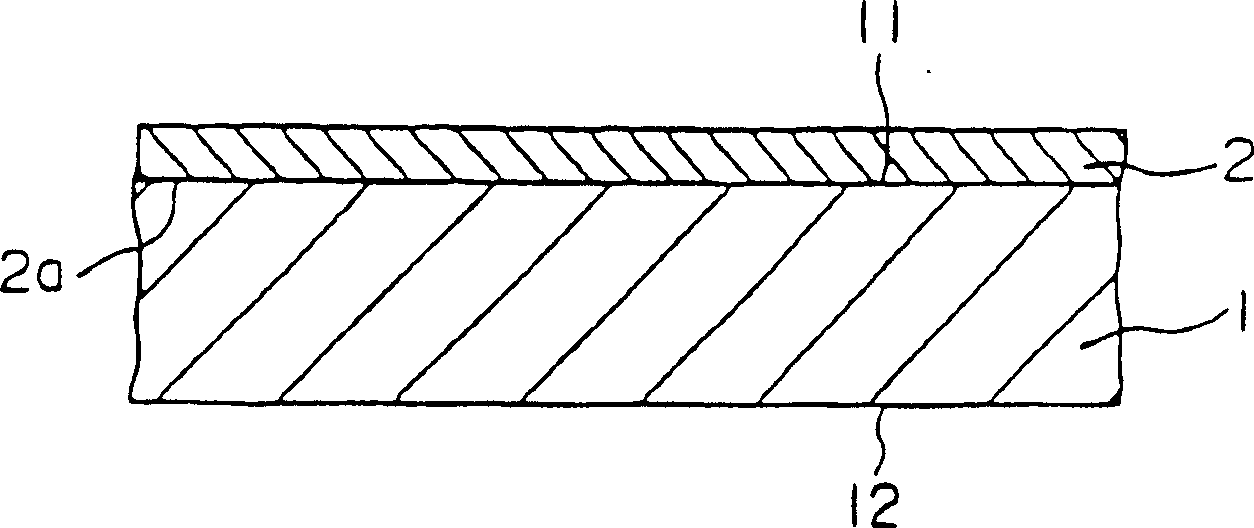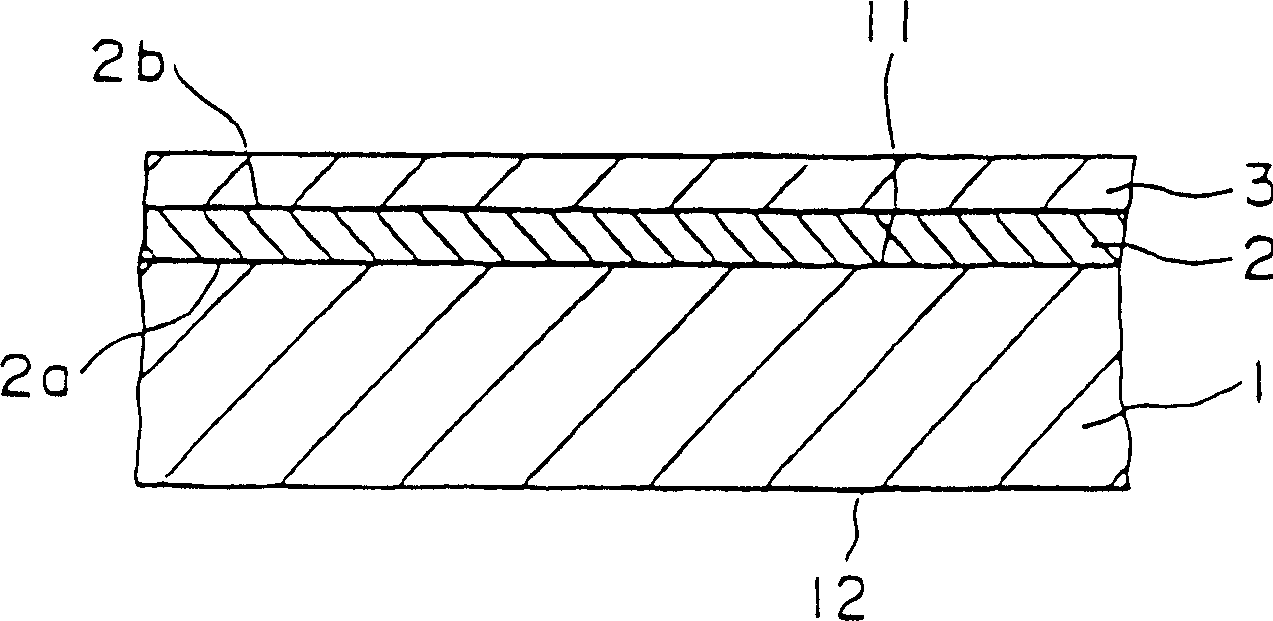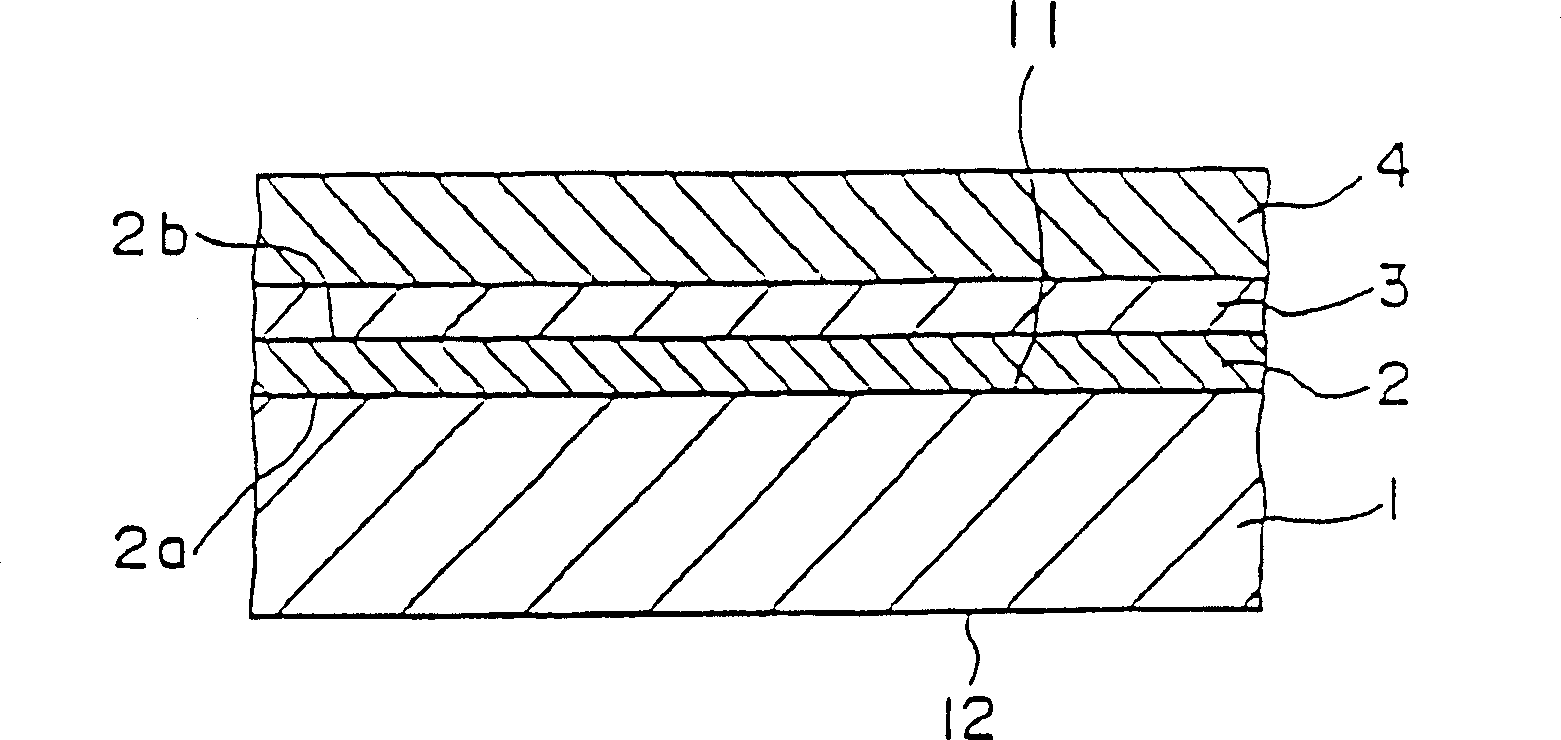Transferring method of thin film device, production method of active matrix substrate
An active matrix and transfer method technology, which is applied in semiconductor/solid-state device manufacturing, optics, instruments, etc., can solve problems such as difficulties and achieve the effect of preventing the deterioration of characteristics
- Summary
- Abstract
- Description
- Claims
- Application Information
AI Technical Summary
Problems solved by technology
Method used
Image
Examples
Embodiment 1
[0162] A quartz substrate (softening point: 1630° C., deformation point: 1070° C., excimer laser transmittance: approximately 100%) of 50 mm in length × 50 mm in width × 1.1 mm in thickness was prepared, and on one surface of the quartz substrate, the Low pressure CVD method (Si 2 h 6 gas, 425°C) to form an amorphous silicon (a-Si) film as a separation layer (laser absorbing layer). The film thickness of the separation layer was 100 nm.
[0163] Secondly, on the separation layer, the ECR-CVD method (SiH 4 +O 2 gas, 100°C) to form SiO 2 membrane as an intermediate layer. The film thickness of the intermediate layer was 200 nm.
[0164] Secondly, use CVD method on the intermediate layer (Si 2 h 6 gas) to form a polysilicon film with a film thickness of 50 nm as the transferred layer. Thereafter, a predetermined pattern is etched on the polysilicon film to form regions to be source, drain, and channel of the thin film transistor. Thereafter, the surface of the polysilic...
Embodiment 2
[0173] Transfer of the thin film transistor was performed in the same manner as in Example 1 except that the separation layer was made of an amorphous silicon film containing 20 at % H (hydrogen). In addition, the amount of H in the amorphous silicon film is adjusted by appropriately setting the conditions at the time of film formation by the low-pressure CVD method.
Embodiment 3
[0175] In addition to making the separation layer a ceramic thin film (composition: PbTiO 3 , film thickness: 200 nm), the transfer of the thin film transistor was carried out in the same manner as in Example 1.
PUM
| Property | Measurement | Unit |
|---|---|---|
| softening point | aaaaa | aaaaa |
| wavelength | aaaaa | aaaaa |
| wavelength | aaaaa | aaaaa |
Abstract
Description
Claims
Application Information
 Login to View More
Login to View More - R&D
- Intellectual Property
- Life Sciences
- Materials
- Tech Scout
- Unparalleled Data Quality
- Higher Quality Content
- 60% Fewer Hallucinations
Browse by: Latest US Patents, China's latest patents, Technical Efficacy Thesaurus, Application Domain, Technology Topic, Popular Technical Reports.
© 2025 PatSnap. All rights reserved.Legal|Privacy policy|Modern Slavery Act Transparency Statement|Sitemap|About US| Contact US: help@patsnap.com



